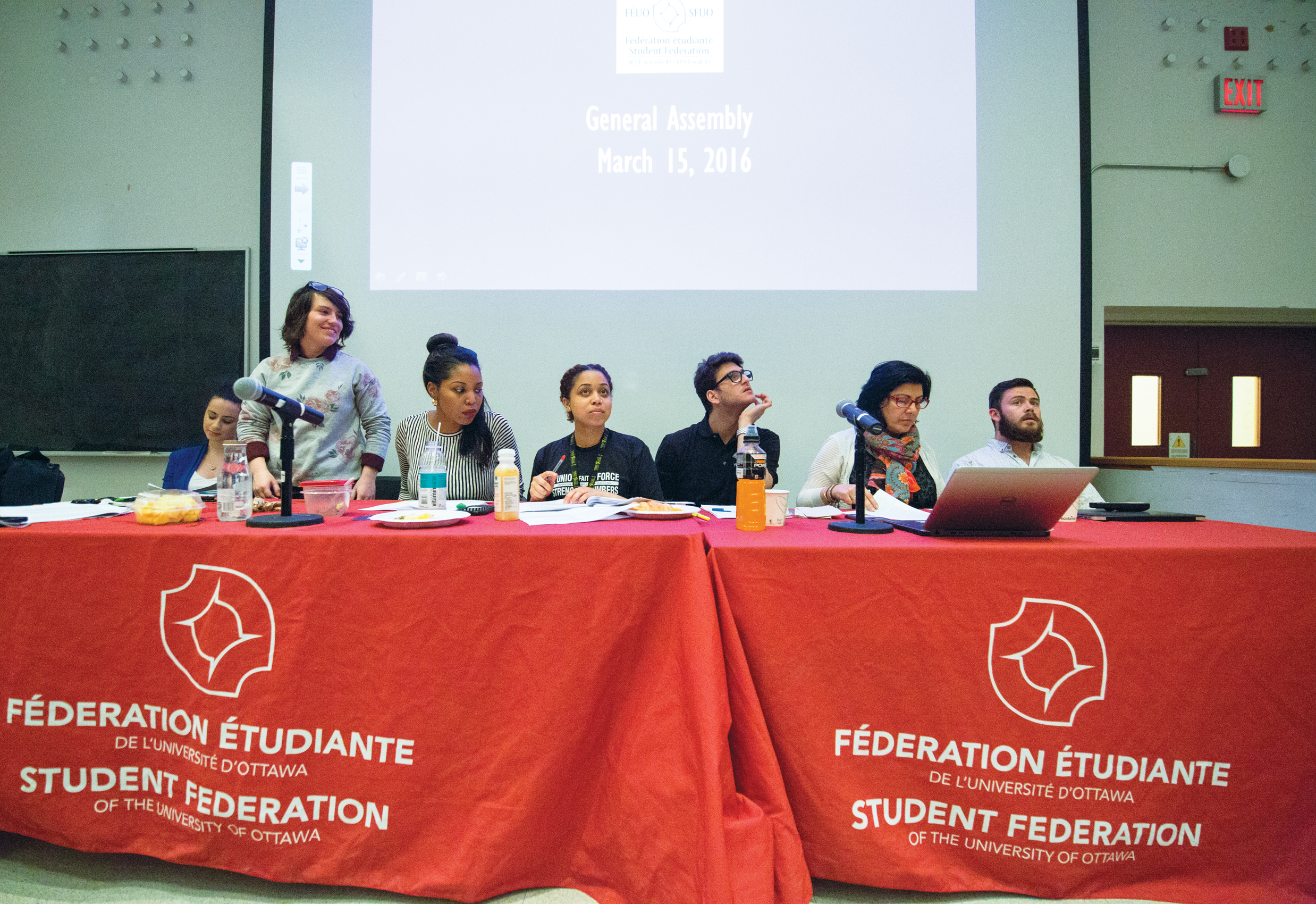General Assemblies are improved by a healthy amount of participation
By now, you’ve probably heard about the University of Ottawa’s record with General Assemblies (GA)—it’s pretty bad.
Despite four previous attempts, the GAs have yet to make quorum, which means no action can be taken by the SFUO based on the students’ suggestions at the meetings.
But before we deal with that issue, there’s something even more important—submitting motions. Before every GA, all U of O students are allowed to bring forward motions. For example: motions for an emergency student hardship fund, promoting bilingualism among SFUO executives, and new dining hall regulations.
All you have to do is get 100 signatures and submit the motion to the SFUO by 5 p.m. on Friday, Oct. 21.
The step of submitting motions is often overlooked, since the deadline always expires before promotion of the GA really gets underway. At the last GA, no motions were submitted on time—this is a big problem.
According to the SFUO constitution, the GA is the highest-ranking body in the SFUO, even above the Board of Administration (BOA).
GA motions are the ideal way for students to make their voices heard in student politics. If the event meets quorum, then the motions can be adopted in the room.
If it doesn’t meet quorum, the motion will still be accepted, and will carry over to the next GA. Last year, the SFUO brought all the motions from the most recent GA, which didn’t meet quorum, to a BOA meeting and voted on them there.
So the fear that the GA won’t meet quorum shouldn’t discourage you from bringing motions forward—they can pass either way. They definitely have a better chance of passing if you present them than if you don’t.
Conversely, your decision to bring motions can actually make the GA more appealing to others. If there are a lot of items on the agenda, whether it inspires agreement or dissent, that will provide further impetus for more students to attend the event. It’s a win-win.
In the first semester of last year, the GA saw no motions presented at all—and turnout was terrible. Only 40 students of a necessary group of 326 showed up.
If you’re still not sold on this whole concept, don’t forget that the motions you present will always get time for discussion if it is approved by the submission deadline. This means that the issues you care about will be talked about by other students who want to make the school better, among several members of the SFUO.
In the end, your motion will be talked about and then voted on—rest assured, your voice will ultimately be heard.





